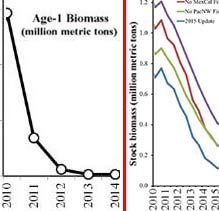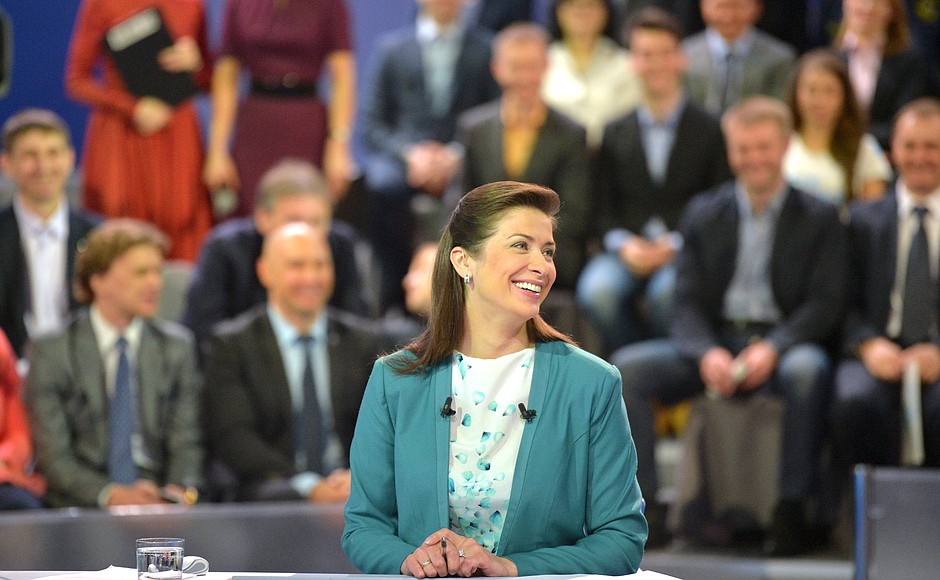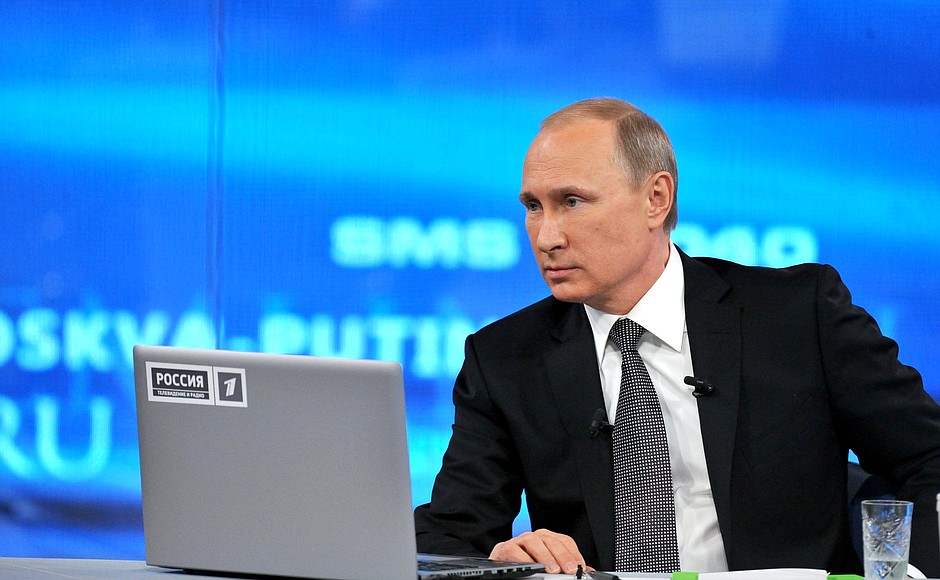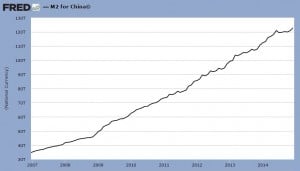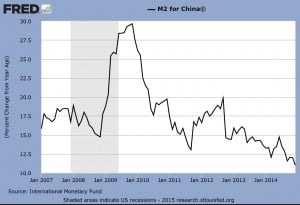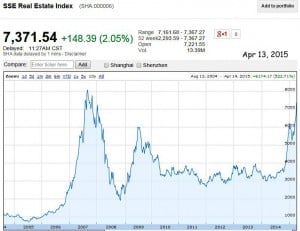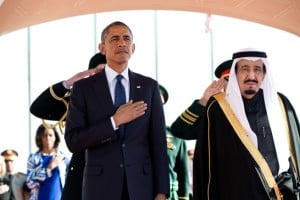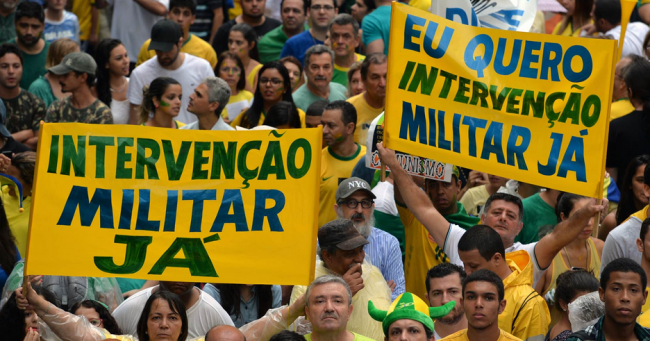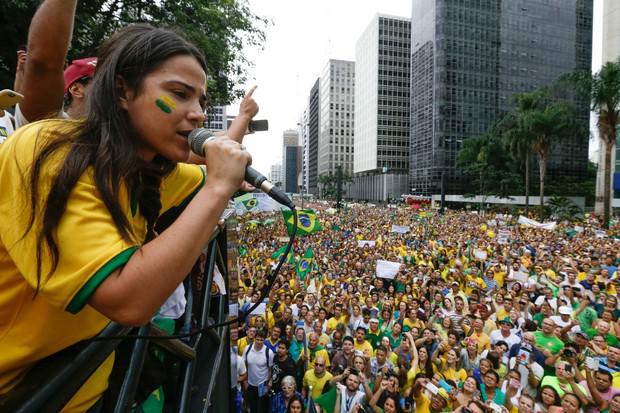We are live with President Vladimir Putin.
Tatyana Remizova: Good afternoon, colleagues! Hello, Mr President.
Our call centre has been working for a week, and we will continue to take calls during the Direct Line broadcast. Our operators are getting ready for a peak in your calls.
I would like to remind you that you can call us at the toll-free number 8 (800) 200–4040 or send text messages to 04040. People from other countries can call at the number you see on the screen.
Over the past seven days that our call centre has been operating, we have received a record number of calls. We have already received more questions than by the end of the live broadcast last year.
We now have a total of 2.486 million messages, of which over 1.7 million are phone calls and over 400,000 are SMS messages.
Natalya Yuryeva: Good afternoon. For the first time this year, you can send your questions to the President with photos and MMS messages to 04040. A picture is worth a thousand words and will be the best illustration to your problem. Our operators continue receiving your video messages that can be sent using the website www.moskva-putinu.ru or the free app on your smartphones and tablets. Just as last year, we provide live interpretation into sign language for people with impaired hearing. We will be receiving your questions throughout the live broadcast, so there is still time to record and send in your questions. Who knows, maybe the President will answer yours.
Yekaterina Mironova: Here in the studio we have people we featured in our reports, people representing all of Russia: doctors, teachers, farmers, entrepreneurs, rescue workers and service members. They all have questions for the President.
Maria Sittel: Shall we begin?
Vladimir Putin: Good afternoon.
Maria Sittel: Good afternoon, Mr President. This has been a year when you had to take on a lot. You might say this has been a year of personal decisions for you. You had to make them quickly and accurately, and nobody could do it for you. This applies to the counter-sanctions, the diplomatic marathon in Minsk, and Crimea, of course.
The economic situation is also complicated. Given the external pressure, it also required your direct personal decisions. What are the results of the year? What have you managed to add up, what has been brought down maybe?
Vladimir Putin: This is a traditional question. I proceeded from the idea that you would ask this and this is something I would have to mention in any case. So I made some notes to make sure I do not invent things or get confused in the numbers. Actually, a lot of this has already been made public, but some figures are new and I am happy to share them with you and with the entire country.
You have already mentioned some of the results. This is the accession of Crimea and Sevastopol and the complicated foreign economic situation. Something we have said a lot about, but is worth mentioning now again, although it happened last year is our victory in the 2014 Olympics, the successful Sochi Winter Olympic Games. All this happened last year.
I would also mention the fact that we have come across certain external limitations, which in one way or another have had an impact on our growth rates, on our development, though on the whole we can now see that the ruble is gaining strength and the stock markets are on the rise. We have managed to avoid spiralling inflation.
Let us look at some specific figures. By the end of last year, Russia’s GDP has grown by 0.6 percent – a small growth, but it is growth nevertheless. Industrial production has gone up slightly more – by 1.7 percent, while the processing industry – by 2.1 percent. We have set a new record in oil production – 525 million tons, which is the highest in recent history. We also took in the largest grain crop in recent history – 105.3 million tons. Overall, agriculture demonstrated very good results with a 3.7 percent growth. We are also observing growth in the first quarter of this year, and this is good news.
There are positive dynamics in a number of other industries as well. Thus, the chemical industry has grown by 4.1 percent, the production of mineral fertilizers by 4.2, and so forth. At the same time, as you have justly noted, we do have some problems. The reduction of capital investment from small businesses was a negative signal. Thus, overall capital investment last year went down by 2.5 percent.
At the same time, housing construction has been doing very well. Our construction workers can be proud that they have also demonstrated record achievements in the entire history of the Russian state. Never before, neither in Soviet nor in post-Soviet times, and not in pre-Soviet either, I am sure, have we built so much housing – around 81 or even 82 million square meters.
We also managed to avoid a sharp hike in unemployment. It did grow last year, from about 5.3–5.4 in the middle of last year to 5.8 now, but we have managed to hold it back. I am certain we will get back to this today.
Meanwhile, the results of last year show an 11.4 percent growth in consumer prices. There is nothing good about this, of course, because this affects people’s living standards. However, in March the inflation rate has dropped. The population’s disposable income has gone down by 1 percent, while wages and salaries grew by 1.3 percent. As you may know, we have indexed pensions – both social and old age ones. Meanwhile economic uncertainty has led to a capital outflow. This is also something we need to keep in mind, but if there are questions about this, we can discuss it in greater detail. I see nothing disastrous here.
Despite the significant fluctuations on the financial market, Russia’s banking sector has demonstrated good dynamics. The portfolio of loans to the real sector of the economy has grown, and what is especially good is that the overall assets of Russian banks have grown to reach 77 trillion rubles and for the first time they exceed the nation’s GDP. This is a very good index, demonstrating the stability and reliability of the Russian banking system.
I have to say that both individuals and legal entities are now returning the money they withdrew or exchanged into hard currency at the end of last year. Thus, citizens’ deposits grew by 9.4 percent last year, while those of economic entities – by 40.6 percent, and they continue growing this year. In January, citizens’ deposits have added another 2.8 percent to reach over 19 trillion rubles, while those of organisations grew by 5.1 percent to a total of over 26 trillion rubles.
Overall, if we move on to budget issues, we concluded last year with a slight deficit of 0.5 percent and managed to prevent a spiralling into a major deficit. In other words, there is a deficit, and we envisaged a somewhat greater one this year of 3.7 percent, but it is quite reasonable.
One of the positive outcomes of 2014 was undoubtedly the positive demographics. The birth rate has gone up against a drop in the death rate. The average life span continues growing and this speaks of an overall positive tendency and public sentiment in general.
These, briefly, are the results of 2014 and the beginning of 2015.
Kirill Kleymenov: Mr President, the numbers you have provided mainly deal with macroeconomics and they are quite positive. However, if we consider the viewpoint of an ordinary person and judge by the questions we continue receiving on this live broadcast, the picture is not as rosy and there are quite a few problems. Let us consider the economy in detail, as this is the basis of everything.
I would like to begin with a question that was brought about by a recent publication. A participant in your meeting with entrepreneurs said you warned the businessmen at this meeting that the sanctions would not be lifted soon; that they should not expect this. First, let us set the record straight – did you have this conversation or not, and if you did, how do you see the situation.
Vladimir Putin: You did not listen to me attentively after all; you were thinking of the question you were going to ask and missed a few of the things I mentioned. I spoke of a number of positive developments, including those on a macroeconomic level, which are very important for further development. However, I also said the population’s incomes have gone down. Salaries have grown a little, but the overall incomes have dropped due to inflation of about 11.4 percent. I mentioned this as well.
As for sanctions, this conversation with entrepreneurs did take place, and I told them they should hardly expect a lifting of the sanctions because these are purely political matters, and for some of our partners I believe they have to do with their strategic interaction with Russia and with hindering our development.
Actually, I do not think this issue directly concerns Ukraine any longer, because the current goal is the implementation of the Minsk Agreements. We are doing everything possible toward this goal, but Kiev is taking its time, while the sanctions have not been lifted.
The point at issue is not the sanctions. What did I tell the business people? I told them that the issue is not limited to the sanctions, that we must find better ways to manage these processes at home, in our country and economy. And that very much depends on what we do.
We have talked about prices and wages, but what is the reason? It is clear that the reason is the pressure on the ruble, its depreciation. In turn, it is connected to oil prices. We know very well that, unfortunately, our economic development has been lop-sided for a long time, and this will be very difficult to change.
What have we been doing for the past years? Wages were growing at a priority pace, much faster than labour efficiency. And the currency rate adjustment was unavoidable – unavoidable – even in the absence of the sanctions.
In fact, the sanctions came in handy for the Government and the Central Bank, which can now blame the situation on the sanctions. But the sanctions are not the only reason. We must adjust our economic policy more professionally, consistently and quickly. It has now been adjusted.
Believe me, this is a very important decision, and both the markets and investors have responded to it. It will help improve our economy and create basic conditions for further development. So the sanctions, which are definitely contributing to our current problems, and which we will possibly discuss here if there are questions, the sanctions are not our biggest problem.
Kirill Kleymenov: But still, how long will all this last, meaning the sanctions? As long as in Iran? We know that Tehran has been living under sanctions for several decades.
Vladimir Putin: After all, Russia is not Iran. Russia is bigger; its economy is bigger and by the way much more diversified than Iran’s. Moreover, our energy policy is different from that of the Iranian authorities, and this is for a number of reasons, which I will not analyse or asses here. After all, Russia’s energy industry is much more market-based than in a number of oil and gas producing countries. So you cannot really compare the two countries.
As for how long we will have to endure the sanctions, I would put the question differently. This should not be about enduring anything – we must benefit from the situation with the sanctions to reach new development frontiers. Otherwise, we probably would not have done it. This goes for import substitution policies, which we are now forced to implement. We will move in this direction, and I hope that these efforts will foster the development of the high-tech sectors of the economy with higher growth rates than previously seen.
The Russian market was too crowded for domestic agricultural producers, especially after our country joined the WTO. But now we are able to clear it up. It is true that this had a negative impact in terms of food price inflation. So in this respect we will have to put up with it for some time, but domestic agricultural output will inevitably grow, and it will grow, especially on the back of the government support measures that are in place.
I am aware of the discontent among agricultural producers. They are probably in the studio and will have an opportunity to ask some questions. We will discuss it, but it should be noted that the support is there. Domestic production and food security are extremely important, and we will seek to ensure them. Would we have taken these counter actions or not without the sanctions? The answer is no. But now we are doing it.
Maria Sittel: It is true that Russia is a strong nation, and we can endure. Many text messages from the regions are coming to mind, in which farmers and producers are all saying that the key thing is to ensure that the sanctions are not lifted, because we are beginning to step up local production. So removing the sanctions now would be a disaster.
We will come back to this issue later. At the same time there are other questions. People are recalling your press conference from six months ago, during which you said that it would take two years for the economy to recover. Maybe it is time for you to adjust your forecast?
Vladimir Putin: Perhaps we will do it sooner. Given what we see right now – the strengthening of the ruble, market growth and other things – I think that perhaps this could happen sooner, but still, I believe, it will take about two years. Considering all the factors, we are forecasting a certain production decline later this year. But then, we assumed that the start of this year would see a considerable drop in production, but it did not.
I would like to tell you that industrial production in March of this year was 99.4 percent of what it was in March 2014, and in the first quarter of this year, 99.6 percent of the level recorded in the first quarter of 2014.
In practical terms, there has been no decline in production during the start of this year. Some growth is possible but it will be contingent on the key rate, the Government’s and the state’s economic policy, and many other factors. Still, we must do our best to keep up the positive dynamics that we are witnessing right now. It should be maintained and accelerated.
Kirill Kleymenov: We are living in an environment of sanctions and counter-sanctions. Don’t you feel that something could have been done differently?
Vladimir Putin: Perhaps there is always a chance to do something differently. I do not know if something would have been better. I think we took the best approach.
Kirill Kleymenov: Mr President, a very important question is whether we will have enough strength and resources?
Vladimir Putin: You know it is not even the matter of strength. As for resources, we certainly have a lot. The most important thing is human resources, people’s skills and willingness to work. I have had a lot of contact with people, and I know how they feel, particularly about the sanctions. But I do not want to show you the gestures – you can imagine what gestures come from ordinary people.
Our task – the task facing the President, the Government, the Central Bank, and the heads of the regions – is to get through this time with minimal loss. Can we make it or not? Yes we can, and it is not about being patient. We must use the situation to our benefit. And we can do this.
Maria Sittel: What other threats could Russia be faced with this year?
Vladimir Putin: You know, there are lots of unpredictable threats out there, but if we manage to maintain a stable political situation in the country and keep our people as united as we are now, we will be immune to any threats.
Kirill Kleymenov: Mr President, I would still like to focus on some negative issues. The crisis is still here. The Government came up with an action plan to overcome it, but frankly we have not seen any results so far. Sometimes, it seems that the key strategy boils down to our expecting oil prices to improve, and the oil money to start flowing into the budget, thus resolving all the problems.
Vladimir Putin: This is an overly critical assessment of the Government’s work. Of course, the Government should always be criticised, just like the President and the governors. Everyone needs critical feedback as a matter of fact. Generally, criticism helps to look at things from a different perspective, which is always good.
Still, adopting a socioeconomic stabilisation plan for our country under such circumstances is not an easy task and requires a highly professional approach. These things cannot be dealt with in an offhanded manner. You cannot just throw money at the problem thinking that we have an infinite supply of it.
So, it took the Government some time to sort things out and see what needed to be done and what it takes to accomplish it. However, the plan that I mentioned was adopted in late December, and it is now being implemented gradually.
Could it have been done faster? Probably yes, we could have moved faster. Nevertheless, this action plan has been thoroughly thought out, and I believe it adequately reflects the current state of our economy. What I mean is that, first, this is an ambitious plan with a budget of 2.3 trillion rubles, which is a lot. Of this amount, 900 billion rubles were used to directly support the banking system, which is, according to some experts, the lifeblood of our economy. No matter who criticises the Government or the Central Bank, it must be admitted that these actions are correct and justified, which can be corroborated by the previous 2008–2009 crisis.
Moreover, 250 billion has been allocated to the goods-and-services sector, also via banks, but in effect straight into the real sector of the economy. A decision has been made to boost the capitalisation of the United Aircraft Corporation, i.e., to inject 100 billion rubles into the aircraft manufacturing sector. Over 82 billion will be provided to support the labour market and 200 billion plus 30 billion in guarantees to the real sector and for the specific project.
The Central Bank has provided for an entire package of what I regard as timely and economically vital measures. As I said earlier, we indexed pensions at the beginning of the year. In other words, a number of decisions were made in the tax sphere that we will probably discuss later. There is a separate programme to support the agricultural sector. Also, in the domestic transit sector − say, rail transit – things have not been finalised there yet, but nevertheless, a decision has been made to introduce zero VAT on commuter rail services, reduce VAT on domestic air services by 10 percent, and so on. In other words, there is a package, a comprehensive set of measures, and they are beginning to work.
It is probably not quite fair to say that we are not seeing the results. I understand that prices are still what they are, although they started falling in March. This is also a fact – perhaps not in all regions, but it is evident on a countrywide level. The ruble has also stabilised and strengthened. So it would be unfair to say that there are no results. Perhaps there were greater expectations, but this is exactly why I say that we should face up to reality and choose the right direction to move in. I believe that the Government has made the right choice and we are moving down this path.
Kirill Kleymenov: But by all accounts, the strengthening of the ruble has different causes.
Vladimir Putin: Do you think so? What causes?
Kirill Kleymenov: First of all, oil prices have grown slightly and stabilised. And then there is also an element of speculation because funds are simply being converted into rubles, since ruble interest rates have significantly increased.
Vladimir Putin: But why have they increased? (Laughs)
Oil prices indeed have gone up a little, but this is directly connected – and experts are already seeing this – the strengthening of the ruble is connected to oil prices, but this strengthening is not directly related to this increase.
There are other factors involved, and I have already mentioned the main one. Experts see that we have passed the peak of the problems with the repayment of external loans by our banking and other enterprises in the real sector, and we have adjusted the national currency exchange rate. And nothing went bust, everything works.
Yes, we have some problems: inflation has gone up, unemployment has increased slightly, but not like in the Euro zone: it is over 11percent there and here it is, so far, just 5.8 percent. So, all this contributes to the shoring up of our national currency.
Maria Sittel: Let us bring the citizens into our conversation. We will, in one way or another, chip in on various topics. So, while the Government is working on the anti-crisis plan, ordinary people are worried about prices: the prices of housing, medicines, and food.
Vladimir Putin: Pardon me, I would like to make a minor correction if I may. The Government has completed work on the anti-crisis plan. The task now is to put it into practice.
Maria Sittel: Very well.
Primorye Territory, Natalya Vorontsova: “Prices here have already gone up dramatically, the wages are the same and even lower than before, and there are massive lay-offs. We are not living – we are surviving. How long will this go on?”
Vladimir Putin: We have actually already begun to talk about this. It is true – and I said it at the very beginning – that people’s real incomes have dropped somewhat because of the inflation, which leapt to 11.4 percent last year. We will have to take that into account in our social policy by assisting, above all, the vulnerable social groups, the citizens who experience the most hardship.
The second most important task is to preserve jobs. I have already said that certain resources — and that is over 82 billion rubles — have been set aside to preserve jobs. If necessary, that money will be used. I also hope that the downward inflationary trend, in any case its rate of reduction, will remain the same, partly due to the strengthening of the national currency.
Maria Sittel: Thank you.
Let’s give the guests in our studio the opportunity to ask some questions.
Olga Ushakova: Mr President, we have many small business representatives here in the studio, and they certainly have a lot of questions. I would like to give a businessman from Nizhny Tagil, Sergei Partin, an opportunity to ask his question. He is the owner of a mobile confectionary company.
Sergei Partin: Good afternoon, Mr President. Hello Russia. I have the right to ask the first question, thank you. First, I would like to say that the measures to support young businesspeople and those who have only started their business are efficient. Ours is a good example of this. Two years ago, we launched a production company, and this year we have become Russia’s best youth business project. So we keep on working and doing it efficiently, and we wish the same to everyone.
We are experiencing a problem with youth personnel, and we are solving it at the local level. The point is that young people leaving school and even graduating from universities are unaware of what their talents are, how they can benefit Russia, and what they want to do in life. So my question is, how is the problem of early career guidance of young people going to be resolved at the state level? Thank you.
Olga Ushakova: As I understand it, you are ready to share your experience with us.
Sergei Partin: Yes, I have mentioned that we have some experience, and it helps a lot.
Vladimir Putin: What do you produce?
Sergei Partin: At the moment, we are making candies and expanding the business through franchising. We are teaching people excellent cooking skills, both children and adults.
Vladimir Putin: See? This is a perfect example of what can be done and in what way. Training professional personnel, particularly in production, is a key element for growth in the near term as production itself is becoming more complicated and we really need highly skilled workers in the first place.
We work closely in this area with business associations – those representing small, medium-sized and large businesses. We have agreed with them on a variety of cooperative measures. These include competences in many areas, the joint organisation of in-production practice and so on. Without this, it is simply impossible to move forward – this is obvious. The Government has a comprehensive programme for action in this area.
But of course, you are absolutely right: it would be better to start this career guidance at an early stage, in school. Yesterday, I had a discussion with my colleagues. In large cities like Moscow, almost 100 percent [of young people] want to move on with higher education. Striving for knowledge is, incidentally, a very good thing of course, but it shows, among other things, that career guidance at school, which you mentioned, is still poorly organised here. We’ll work with you on this.
Kirill Kleimenov: Let’s give our guests an opportunity to ask questions. Valeriya, please.
Valeriya Korableva: I would like to give the floor to Alexei Kudrin, the former finance minister, an eminent expert who has twice been recognised by the international community as the best finance minister in the world.
Mr Kudrin, your question please.
Alexei Kudrin: Good afternoon, Mr President.
Vladimir Putin: Good afternoon.
Alexei Kudrin: This is also about the economy.
Vladimir Putin: I see.
Alexei Kudrin: During your first presidential term, the economy grew by about 7 percent on average, even though oil cost approximately $30 per barrel. But during your current term, the average economic growth rate will be about 1.5 percent even if the price of oil goes to $65-$70. That is, there will be negative growth years and positive growth years, but the average rate will be about 1.5 percent, which is lower than the world’s average.
The global share of the Russian economy will decrease. There will be insufficient investment in technical progress and modernisation. We will lag behind the [industrialised] world technologically. Unfortunately, this will affect our defence capability, which depends on the economy and technological standards. No matter if we say we can manage, the figures I have provided are almost hard facts for the period until 2018. It is unfortunate, but we will be lagging behind the world.
You also said that the Government is adjusting its policy. But I do not think that adjustments can save the day. The old economic system has exhausted its potential, and nothing new has been proposed so far.
What can you do to help us create a new growth model?
Vladimir Putin: Mr Kudrin, we have worked together for many years, and we have very good and nearly friendly relations. I know your views on this matter. And you have presented your forecast very clearly, and it is very close to what can indeed happen.
To begin with, you were among the authors of the programme of the development of our country and its economy through 2020. “2020” is a well-known programme and it has not changed in any significant way. If you and I overlooked something, this has to be our fault, including your fault.
But we have to proceed from the realities of today and – you are right – to look at what is happening in the world and in our economy. The blueprints are known: we have to provide better conditions for business, we have to provide better conditions for private investment, we have to improve our monetary policy, and of course we must greatly improve the system of running the country as a whole, the Government and individual sectors, we must improve the work of law enforcement agencies and the justice system. This is a complex task. It is easier said than done, but of course we have to do it. As they say, “don’t dwell on it, deal with it.” We must do it.
Of course there are things that are well known, but, as they say, this requires political will. You know that in spite of the fairly difficult conditions, we are exerting certain efforts in the direction you and the people who share your views on the development of the economy have recommended.
For example, this year, the Government has not adjusted for inflation certain social benefits. I am aware that your colleagues, those who share your point of view, say this is not enough and that perhaps we should make more reductions and freeze more expenses, and reduce incomes because wages are growing too fast, that the retirement age should be raised as soon as possible if we are to balance the pension system in which we have to funnel huge resources out of the budget and the reserve funds. All this impedes our development. Theoretically, this is true, of course. To shape economic policy competently, a brain is definitely needed. But if we want people to trust us, we need a heart, too. And feel how ordinary people live and how this affects them.
If we keep people’s trust, they will support everything we do and even will be willing to put up with this situation, as our colleagues have assured us. But if we act while disregarding the people, then we will quickly roll back to the early 1990s, as I see it, when we will lose people’s trust and will have to spend much more money on social issues than is stipulated for onward movement, even if at a slow pace, like it was when we decided to convert from benefits in kind to cash payments, a sharp move that ultimately cost huge amounts of public funds. To prevent this, we will do what the Government and the Central Bank have proposed. I think this will suffice.
We will see if our lag will be really serious. Just look at the level of the US national debt, which is now higher than its GDP. This is an alarming sign, a red flag for the entire global economy. And we do not know which turn the events will take there.
The Euro zone has a huge amount of problems. It is coming apart. What will the debtor countries, whose debts have reached 174 percent of GDP, do? What will happen in Europe? Will the Euro zone leaders be able to help the underperformers? We do not know this either. So we will above all focus on ensuring high growth rates, but in doing so we will try to avoid putting an excessive burden on the people. Everybody knows this very well. Well, maybe not everybody, but Mr Kudrin knows enough as a member of the Presidential Expert Council. You know that we highly respect your opinion, and I personally respect it, honestly, and we will definitely listen to what you have to say.
Alexei Kudrin: Mr Putin, may I explain one detail?
Vladimir Putin: Yes, certainly.
Alexei Kudrin: The fact is that reform in the social sphere is part of structural reform. It is not entirely accurate to presume that my colleagues or I propose reducing incomes or freezing salaries. Targeted social assistance is one of our ideas. That is, the way things are now, someone needs to be paid more based on considerations other than average wage or benefit increase ratios. However, others may have to get by with smaller salary adjustments. Different approaches depending on household income are more efficient even before a crisis or in-between crises, all the more so during a crisis. This is my first point.
My second point is that, after all, our proposals are designed to curb inflation. Current inflation as of early April is up 17 percent compared to April 2014. This jump may not have happened if other reasonable measures had been taken, and the standard of living and real income would not have declined so much in that case. Remember when I said earlier that salary increases should not outpace labour efficiency? But that adjustment has now happened. If wage growth had stayed with labour efficiency growth, this adjustment would have been less pronounced. I wanted to clarify this.
Also, I believe that the Presidential Council, its Presidium, is too sluggish. It should work harder.
Also, Mr President, one more point: Strategy 2020 was developed, but it was not adopted by the Government. It remains a draft. About 25 percent of it was used for drafting various Government measures, but the strategy itself is not working. That is why I am saying that under the current circumstances we need a programme that can clearly identify the goals that we can reach despite the sanctions imposed on our country.
Thank you.
Vladimir Putin: Programme 2020 is a guideline for our development and it is still in effect. As for the targeted nature of social assistance, I completely agree with you, and the Government has been instructed to work on this.
Regarding the issue of wages rising out of proportion to the rise in labour efficiency, I have already expressed my position on the issue and I believe that you are also right. Simply put, it is always more difficult to do this on the practical level than in conversation, even during direct lines, directly with the people, because the level of wages, the level of income, especially in such a sphere as school education, is too low to count on real results.
Granted, this leads to imbalances, like those that we have today. Yes, this happens, but on the whole we should seek to ensure that – as this is the case in some sectors – wage rises should follow productivity, not vice versa. This is true.
Maria Sittel: It is very important to preserve people’s trust, as you said a few minutes ago, and Russian people are willing to help you here by drawing your attention to the fact that the authorities, with their ill-considered actions, for example, provoke uncalled-for price hikes. I am now talking about the counter-sanctions and the fact that they have been successfully bypassed. For example, here are two short text messages: “Why is it that we were promised import substitution [programmes] but in reality we are buying the same things, only through ‘friends’?” The word “friends” is used here in quotation marks, meaning that imports are coming through intermediaries. The other message: “Despite the embargo, we continue eating Polish apples and cabbage. They have never disappeared from the shelves. In September, we had them at 35 rubles [per kilo] and in the winter they were 85. The deception is simply outrageous: They arrive in the same containers, but without the stickers or with stickers from other countries, and sales assistants know that these are Polish apples.”
Vladimir Putin: It would also be good to know who provides customs clearance for these shipments. If this is true, and it could actually be the case, we will try to eradicate such practices. Honestly, this actually makes the situation on the food market somewhat less dire. As I’ve already said, the counter-measures we have taken led to an increase in food prices, driving up inflation. Still, this is an issue of being dishonest about what you do. Please, let me know where such things are happening.
The main thing now is not to fight simply such negative developments, but to focus on fostering growth in the domestic agriculture industry. This way we will be able to free our shelves of foreign goods by economic means, coupled with a dose of administrative pressure based on counter-sanctions, so that domestic producers can have the place they deserve on store shelves.
Kirill Kleymenov: Let’s continue with agriculture.
Here is a text message confirming what Maria has just said. It comes from Yury Lang from the Novosibirsk Region, who works in agriculture. He writes: “Mr President, agricultural producers are asking you to refrain from lifting sanctions against foreign producers, give us a chance to flood the market with our own organic products. I’m afraid that foreign goods could invade our markets.” We have an opportunity to understand whether Yury’s colleagues in other parts of the country share this sentiment. The Stepanovo village in the Kostroma Region, where our colleague Pavel Krasnov is working, joins us now.
Pavel Krasnov: Hello, Moscow. This is the village of Stepanovo in Kostroma Region. We are now on a farm; there are perhaps thousands of similar farms in Russia. This cattle-breeding farm – you can see its structures around us – is the work of local farmers. Three farmers here in Stepanovo have formed a company to produce beef and milk. This farm is the result of their efforts. It is not big compared to others but, I repeat, it is like many others in this country. And the issues that concern the local farmers are certainly the same as those that interest their colleagues in other regions of Russia. These issues, of course, have to do with agriculture and support for it. But the professionals themselves can state their case much better than I. I’ll give it over to them.
Mikhail Rumyantsev: Good afternoon, Mr President. My name is Mikhail Rumyantsev, and I am a dairy farmer. I would like to ask you about state support. We have many agricultural programmes, perhaps even too many. But for some reason the money that comes to this region is shared mostly among major producers, big farms, and investors, while we, ordinary farmers, are left with crumbs. We would like this injustice to be rectified. Thank you.
Vladimir Putin: Let me report in general on what is being done in the agricultural sector and in terms of its support. The host has just read a question asked by one of your colleagues, an agricultural producer. He said that we should keep the market free of foreign goods. But there is the other side of the coin, the consumers, who want quality goods at acceptable prices. This is why the state has developed a system of measures to support agriculture as a whole. This system includes two tax support options: a simplified tax system and a second system. Which one do you use?
Mikhail Rumyantsev: I pay agricultural tax.
Vladimir Putin: Unified agricultural tax, right? But this year we have introduced additional support measures. What are they? One of them – and I think it is the most significant one – is the increased subsidies for bank interest on loans that entrepreneurs use to increase their working capital. It used to be that the government only subsidised 5.5 percent of the bank’s interest rate on loans; now it is 14.7 percent. This means that if you, for example, borrow at 20 percent, you pay an interest of 20 percent minus 14.7 percent. However, if you borrow at 25 percent, your resulting interest will be 10.3 percent. But I hope that, once the Bank of Russia takes some steps to cut its key rate, borrowers’ lives will be easier.
We have allocated an additional 50 billion rubles to support agriculture this year, and approved another 4 billion to subsidise equipment leasing. Two of the four billion, I think, went to Rosagroleasing. Other government measures involve increasing the “per-hectare” support by 8.5 billion from the former 14-something – probably 14.5 billion rubles.
Now, regarding the support for small agricultural businesses such as yours. Our recommendation to regional governments is to provide two million each to start-up farms. The money comes from the federal budget.
You were right to say that there is a whole package of support measures. It is difficult to say why the support never reaches the small businesses it is meant for. To find out, we might need to explore the situation in your region specifically. The area you are working in is certainly a challenging segment of agriculture, so the government will need to think of more ways to support dairy producers. Right now, purchasing prices are often below your production costs, I know that. We understand your problems and will try to help you.
As for the problems your farm is facing, specifically, and the situation in your region, we’ll have to take a closer look and maybe talk to your governor. Which region is that?
Maria Sittel: Stepanovo in Kostroma Region.
There are more farmers here with us in the studio today, so let’s give them a chance to ask their questions.
Dmitry Shchugorev: In fact, every time I speak to farmers I see that these people carry endless optimism, despite everything – and there are many “despites.” For instance, here we have an ordinary Russian farmer who goes by the simple Russian name John. He arrived in Russia 23 year ago, and he’s been a citizen of Russia since 1997. I spoke to him – and to my surprise, I have learnt that throughout all these years, his farm hasn’t yielded a penny of profit.
Mr Kopiski, you have the floor.
John Kopiski: Good afternoon, Mr President.
Vladimir Putin: Good afternoon.
John Kopiski: Today we have 3,700 cows, of which 1,700 are milking cows. Each cow produces 10,000 litres of milk a year. We sell milk below cost, and we have no money in reserve. Now, after the well-knownconflicts, the cost has increased. Today we have to sell our milking herd as we have absolutely no money.
I cannot develop my farm and build new farms because I have no profit. I have been in this business for 15 years. I cannot develop my farm if I can’t get a long-term loan not only for 15 but for 20 years, provided that a bank agrees to provide this money. You do a lot of good things, but banks are a different story.
So I cannot develop my farm if a bank demands collateral of at least 120 percent. A colleague of mine has collateral of 200 percent. To get the loan, my own contribution should sit at 30 percent. Even, as you have just mentioned, with a 26 percent interest rate. I can only hope that we’ll have to actually pay a 13 percent interest rate… If so, then when? Two years ago, I had to wait for 11 months. And we can be out of business any day.
You have the statistics. Everything looks fine, but, forgive me, this is not so. Please forgive me if I ask you a tough question, but I have five children and I love Russia. Russia is their homeland. I want their future in Russia to be secure. My son has been working in England for two years and he wants to return, but he doesn’t want to run a dairy farm. He told me: “Dad, I’m not a fool.” The future can only be built with the truth. Problems can be solved only if you know the real facts.
I am sorry, here’s my question: do you believe the statistics they show you, or are they lying because they are afraid to tell you the truth? I don’t like statistics.
Vladimir Putin: How did you end up here (in Russia)? Was it a case ofcherchez la femme? It means “look for the woman involved.”
D. Shchugorev: John has a Russian wife.
John Kopiski: I’ve been married to a Russian woman for 23 years, my whole family is Russian.
Vladimir Putin: Regarding trusting or not trusting statistics. Every country has some complaints about its statistics, but I do trust the figures they give me. If you noticed, answering the man who is in fact your colleague, the man from Kostroma who was just asking a question and who also produces milk, I told him right off that the procurement prices for milk are below cost, and this creates problems. These are statistical data. So I have no reason to mistrust these statistics.
The question is what to do to improve the situation? I have already mentioned one step. The Government has decided to increase subsidies on loans to replenish working capital. Anyway, you have been a farmer for so long and you continue to do it, which means that if things were really so bad, your business would have gone under, but in fact it exists.
There is also the issue of dried milk, which is imported in huge quantities, and we keep saying that dried milk imports, for example from Belarus, are ultimately decreasing the prices of Russian goods. As in any other economic association, we will talk it out with our partners in a frank manner to coordinate the methods and the level of subsidies for the agriculture industry as a whole and for individual sectors, including the dairy sector. This is first.
Second, we will certainly have to increase support. I think the Government will have to increase support, including in this particular sector, if we want to preserve dairy production.
However, there is one more component here. You mentioned milk yields. I do not know if milk yields are high at your farm, but I do know that the Russian average is low. Compared to other countries, our dairy industry is ineffective. What is the average for our country? What is the figure at your farm?
John Kopiski: The [annual] yield is above 10,000 litres, or 29 litres per day. I think that if we consider statistics, if we have honest statistics for forage-fed cows, we cannot say that the average annual yield in Russia is below 5,000 litres. The yield at my farm is higher.
Vladimir Putin: Twice as high.
John Kopiski: But that is because we do not have so many forage-fed cows. This is not right, because you need to manage your business, especially the dairy business. Pardon me, but this is very important.
Vladimir Putin: It is important indeed.
John Kopiski: So where is the reality?
Vladimir Putin: It is important, I agree. We are aware of the reality. You may think that this is not the case for me or the Government. But we do know how things are, and I hope that the Government will make relevant decisions to this effect, as I have already said.
Maybe what has been done so far is not enough. That said, quite a bit has been done on the back of some restrictions, including budget constraints. We have to balance the interests of a number of industries, although agriculture is currently among the priority areas. What I mean is that we are freeing up the market for domestic producers. We will keep working with you on this. Let’s wait and see.
As for statistics, I am inclined to trust rather than distrust them.
Kirill Kleymenov: Thank you. Let’s hear another question from Kostroma Region. Pavel, go ahead.
Pavel Krasnov: Here’s another question. We have set up a special display to illustrate it: a bottle of locally produced milk from the Stepanovo village. This isn’t a coincidence. So, what is your question?
S. Smirnov: Hello, Mr Putin, greetings to you from our staff. Hello to the people of Russia.
We are a small company, but still we are contributing to some extent to the wellbeing of our country. We produce milk and meat. Unfortunately, we now find it very challenging to sell our products, to get it to the customers. So I would like to ask two brief questions.
The first question has to do with what is known by the blanket term “social sphere”: kindergartens, schools, specialised boarding schools and so on. I would like our products to go directly to these institutions because we produce high-quality milk. Milk powder is good, but it needs to be rehydrated before it can be used. We provide real full-cream milk, and we find it difficult to compete with those who buy and resell. We don’t do this; we just need to sell what we produce. This means agricultural producers like us need some quota in this market niche, even a small one. This is my first point.
The second is that we need to reach our customers directly, to be close to them. We need to organise our own retail business, even a small one, small shops maybe or trailers, but we want to be able to offer customers our products bypassing large grocery chains, intermediaries and so on.
The math is quite simple really: we can supply our milk to a dairy plant which pays us 16–17 rubles a litre, while in a store, the kind of full-cream milk I have here costs 72 rubles or more. So who earns more per litre of milk: we, who produce it, or those who buy and resell?
So that is why farmers are so keen to have a channel to sell their products directly to customers, so that customers would be able to buy directly from their farmers.
Thank you.
Vladimir Putin: About the cost and purchase prices – we have already agreed that this is an issue we certainly need to address.
With regard to selling your product, milk. We have talked about this many times, and even adopted special legislation to protect agricultural producers and help them get their produce to grocery stores. If that is not enough, we can come back to this again and review this issue one more time.
Regarding the use of milk in social institutions, such as kindergartens, schools, etc., these issues should be addressed at the regional and local levels. I hope that your governor and other governors hear us and will act upon this.
However, in this case, you will still need to look at the price level, because if a region buys something, milk in this particular case, then of course, the regional authorities will be thinking about how much they can afford to spend on a particular product (it involves budget funds, which are limited).
And, finally, your last proposal, or rather idea, to operate through your own outlets. You are talking about large urban areas, right?
S. Smirnov: Yes.
Vladimir Putin: That’s what I thought. Does it have to do with purchasing some retail space or setting up temporary selling spots? Is that what we are talking about?
S. Smirnov: I am not talking about the markets, because first, milk is a perishable product, and second, we want to be closer to our customers. We want to establish a presence in residential areas. There are clean water programmes with small outlets selling clean water. We need municipal authorities to give us five to six square metres in a city and hook us up to a power line. We will build a stall, which will be part of the urban development plan. So, everything will look good and neat and will be consistent with the sanitary-epidemiological regulations.
Vladimir Putin: I am sure it will. You know, there are misgivings, in particular among local authorities, because of the negative experience with outdoor markets, even very small ones. There is a problem here, that retail chains and individual stores sell expiring or expired goods to these small markets.
But you are speaking about very practical issues related to the marketing of particular goods, and I fully agree with you. We will send a signal to the heads of regions, who will in their turn get to the municipal authorities. I see nothing bad in this; the idea is very good because it will reduce the distance between the producers and their buyers. Indeed, we sell kvass and water at outdoor facilities, so why not sell milk too?
I fully agree with you. I will certainly discuss this idea with governors.
Thank you, and good luck.
Kirill Kleymenov: We thank the village of Stepanovo for taking part in this Direct Line.
We can also take questions from the audience. Valeriya, go ahead please.
Valeriya Korableva: We have a question on foreign policy. We have here MGIMO Rector Anatoly Torkunov, a diplomat, historian and political scientist.
Anatoly Torkunov: Thank you.
Mr President, we know that our prosperity and economic development largely depend on foreign developments, the global political agenda and international relations.
My question is specific rather than global. This week the media carried dozens and even hundreds of comments on Monday’s statement about the lack of obstacles to sending S-300 air defence systems to Iran. At one point we signed this agreement with Iran but then suspended it later.
In commenting on this issue, both journalists and politicians expressed many apprehensions over sending the S-300 missiles, that it would impede the completion of our six-way talks on Iran’s nuclear programme. Moreover, some of them even claimed the air defence systems would aggravate the situation in the Middle East.
This morning I also read Angela Merkel’s statement that the sanctions should have been cancelled simultaneously rather than one by one. Meanwhile, some people in Israel are saying, as you may have heard, that if the S-300 systems are sent to Iran, Israel would take its own measures, including arms sales to Ukraine. I would like to know what you think about this.
Thank you.
Vladimir Putin: Indeed, we signed this contract way back in 2007. In 2010 it was suspended by a presidential executive order because of the problems over the Iranian nuclear programme. This was really the case, but today we can clearly see – and you understand it well, as an experienced person – that our Iranian partners are demonstrating a lot of flexibility and an obvious desire to reach a compromise on their nuclear programme.
In effect, all participants in the process have announced that an agreement has been reached. Now they only have the technical details to deal with, and they will complete this before June. This is why we made this decision.
I have not read or heard the statement by the German Federal Chancellor and cannot comment on it for this reason. But if someone fears that we have started cancelling the sanctions, apparently our colleagues do not know that the supply of these systems is not on the UN list of sanctions. We suspended this contract absolutely unilaterally. Now that there is obvious progress on the Iranian track, we do not see why we should continue imposing this ban unilaterally – I would like to emphasise this again.
As for the list of sanctions envisaged by the UN resolutions, we will of course act in unison with our partners. We have always cooperated with this, and I would like to stress that we have made a large contribution to the settlement of the Iranian nuclear issue.
Moreover, our companies made this equipment. It is expensive – worth about a billion dollars ($900 million). Nobody is paying our companies for these systems. There was a hint that they could be bought, but nobody buys. So we have to ask: why should we take the loss?
But the situation is improving and this equipment is not on the sanctions list. I think that on the contrary, our Iranian partners should be encouraged to continue in the same vein. In addition, there is one more aspect to this problem.
You mentioned the position of our Israeli partners. I must say, in our military arms exports we have always focused on the situation in the region in question – most importantly, in the Middle East. Speaking of which, we are not the Middle East’s largest arms supplier. The United States provides many more arms to the region and takes a much greater profit.
Well, just recently, Israel expressed concern over our exports of the same S-300 missiles to another country in the region. They stressed that if successful, this arrangement could result in big changes, even geopolitical changes, in the region because the S-300 can reach Israel from that country’s territory even though it is not an aggressive weapon. But as one of my counterparts said, none of Israel’s planes will be able to take off. And this is a serious problem.
We consulted with our buyers. Our partners in one of the Arab countries were quite understanding about the issue. So we cancelled the contract altogether and returned the advance payment of $400 million. We are trying to be very careful.
As far as Iran is concerned, it is a completely different story that does not pose any threat to Israel whatsoever. It is a solely defensive weapon. Moreover, we believe that under the current circumstances in the region, especially in view of the events in Yemen, supplies of this kind of weapon could be a restraining factor.
Maria Sittel: Mr President, we will get back to foreign policy later. I would like to steer the conversation back to Russia. Many people are complaining about high interest rates. I have two messages here.
Larisa Kim from Sverdlovsk Region: “Sberbank raised interest rates for small business loans that had already been extended by three percentage points, effective April 2015, and this despite the fact that the Central Bank is cutting its interest rates. New loans are now offered at an interest rate of 23–25 percent. Is there a way to influence how Sberbank provides financing to small businesses?”
Here’s a follow-up question. Sergei Yermachenko from Irkutsk: “When will loans become more affordable and reasonable in Russia? Interest rates at 35–55 percent kill the appetite and opportunities for business development.”
Vladimir Putin: Regarding small and medium-sized enterprises, support programmes are in place. I will not name them all. I think that those involved in SMEs should be aware of them. This information is public, you can find it online or through relevant business associations.
Just as with agriculture, it may seem that initiatives targeted at SMEs are underfunded. This is the way people should actually feel, because small and medium-size enterprises account for a smaller share of GDP in Russia compared to developed economies. Without a doubt, this is not the way it should be.
One of the main vectors is to create clusters of small enterprises serving major corporations. This is a project for the future. That said, we already have SME quotas in state and municipal procurement. A decision to provide a two-year tax holiday for people starting a business has already been made. This measure is especially relevant for entrepreneurs in rural areas, since they can also benefit from programmes offered by the state loan guarantee agency. The Central Bank of the Russian Federation maintains its interest rate for commercial banks at 6.5 percent. It is true that only one bank, a subsidiary of Vnesheconombank, currently offers such loans. Just recently, I was told by the Central Bank Governor that they intend to increase the number of banks offering such transactions. A bank with SME loan contracts will be able to benefit from a 6.5 percent interest rate from the Central Bank, which means that borrowing costs will be lower compared to market rates.
However, what you have said is, of course, over the top. Naturally, it is important to see what kind of client the bank is dealing with. If there is no collateral, if there is no credit history, then of course, the bank will increase the interest rate. But 35 or 55 percent is an unrealistic figure. Sberbank’s principal shareholder is the Central Bank of the Russian Federation: the Bank of Russia. I will certainly ask Elvira Nabiullina to look into what is going on there. Leave me this information.
Maria Sittel: 35, 55 [percent] – this is not Sberbank.
Vladimir Putin: And the previous one – what was it?
Maria Sittel: 23–25 – Sberbank.
Vladimir Putin: 23–25, maybe that was before the key interest rate was reduced? Well, anyway, this needs to be looked into. Please, give me this information later as well, okay?
Maria Sittel: Right, we will give it to you after the programme. This seems to be a good time for questions about the civil service, because there really are a lot of them. It seems that in turbulent times people pin special hopes on the civil service, with a lot of them asking questions like these: “How professional, in your opinion, is the civil service?” “Is it not the time to bring professionals back into the civil service?” and “Maybe a professional banker should be appointed to head the Central Bank?” These are the kinds of questions being asked.
Vladimir Putin: What “bring professionals back to the civil service” mean? There should always be professionals in the civil service. If there aren’t, this is sad. In fact, we are short of professionals. Incidentally, we seek to provide appropriate wages to attract the most proficient and best-qualified people from the labour market to the civil service. To reiterate, it is always better to have professionals in the civil service to prevent crises. However, if a crisis has struck for objective reasons, then we should find our way out of it with gains, not losses.
Speaking of the Central Bank, I have no major claims concerning its work. By the way, what do you mean by “returning a banker to head the Central Bank”? The Central Bank is not just a commercial bank; actually, it is not a commercial bank at all, it is the main regulator of the Russian monetary and credit sector. Now it also has been vested with larger authorities. That is why a person is needed who has a good knowledge of the work and functions of a banking system, but it has to be a specialist with specific knowledge, economic knowledge, in the first place. One can criticise the Central Bank – and here is a hidden criticism of the Central Bank – for its delay in taking a decision on raising the key interest rate. If they had done it earlier, then probably it wouldn’t be 17 percent. But I would like to stress that overall, all experts – both Russian and foreign – consider the Central Bank’s actions to be professional and efficient, with the necessary results achieved.
Kirill Kleymenov: Now it is time for us to link with the centre for processing phone calls and messages. But first, I would like to ask a question that comes up frequently. “Mr President, foreign currency mortgage borrowers are in trouble. I am appealing to you concerning the currency mortgage issue. We are aware of the Government’s negative attitude to this problem. We are not asking for our debts to be waived, we are asking to re-evaluate, on a legislative basis, the exchange rate in effect until devaluation and thus to make us equal with ruble mortgage borrowers. A law is needed here, as banks will not reject excess profit voluntarily. We are ready to continue paying the mortgage loan to the bank, but on adequate and reasonable terms.” And so on. Mr President, what do you think of this issue?
Vladimir Putin: My overall opinion on people’s problems is that one must always aspire to help them. The reason the state exists is to help people.
What is this particular case about? Not the one that you just read, I do not know who wrote it, but in general, how did the problem arise? No, let me approach it from a different angle. You know, mortgage loans in foreign currency are worthwhile for those who get paid in foreign currency. Assume someone lives in London, New York, Paris or Berlin and is paid in euros or dollars, but plans to live in Russia, as our friend from the United Kingdom and his children, who want to move to Russia. They get paid in foreign currency. His son lives abroad and is paid in foreign currency. He can take out a mortgage loan in foreign currency, because he does not expose himself to the exchange rate risk. However, if someone gets paid in rubles, but takes a loan in foreign currency, he or she would assume this risk. If the rate changes unfavourably, he or she will get in trouble. We should look into that. I am not familiar with the details, but when people take mortgage loans, banks do not assume the exchange rate risk. That way, customers assume this risk on their own accord.
With regard to those who took a mortgage in rubles and found themselves in a tough spot, the Government decided to help these people out. Some money, about 4.5 billion rubles, has been allocated from the budget to this end.
Kirill Kleymenov: Are you talking about the people who took out loans in rubles?
Vladimir Putin: Yes. But this applies only to people who found themselves in a tough spot, such as having lost their jobs. Perhaps the Government can think of ways to help those who took out a mortgage loan in foreign currency due to an unfavourable exchange rate, but this assistance should not be greater than the one provided to the people who took mortgage loans in rubles. In any case, the approach should be uniform.
Kirill Kleymenov: I just wanted to make a small clarification in defence of those people. The fact is that often mortgage loans in foreign currency were taken by customers who bought housing on the secondary market, and they had no choice. The banks did not extend ruble mortgage loans to buy pre-owned real estate.
Vladimir Putin: No, banks are required to extend mortgage loans in rubles. We do live in the ruble zone. But this is a different story. If they refused, you should have insisted, because the interest was as high as 12%. As I said, last year we reached a record volume of housing construction at 12% interest rate. That was for the first time in Russia’s history. The 12% interest rate actually turned out fine enough. Now, the Government also plans to support mortgage and has already approved financing for this.
Kirill Kleymenov: You mean new housing.
Vladimir Putin: Yes. I mean new development projects, and yes, our goal is not only to help people get new housing at affordable prices but also to support the construction market, which, in turn, creates a great number of jobs and encourages employment in related industries, such as building materials and so on, in power engineering and road construction. It is an important sector of any economy – the Russian economy as well.
This is another reason for our decision to subsidise mortgage loans. Mortgage interest has increased to 14%, and we aim to cut it to last year’s level of 12% to revive and support the growth of the construction sector. I think this is achievable.
As for foreign currency mortgages, we should help there too, but let me repeat that the approach and philosophy of that assistance should be comparable to our support for people who have found themselves in a difficult situation, but who had taken their loans in rubles.
Maria Sittel: We have been on air for almost an hour and a half, so let’s look at what’s happening at our message-processing centre. Let’s hear from Tatyana Remizova.
Tatyana Remizova: Thank you, colleagues.
In an hour and a half of this call-in, the number of questions has exceeded 2.8 million, including 2 million submitted by phone.
The Rostelecom lines are overloaded. Our operators are processing almost 4,000 calls a minute. There are a lot of questions about the ruble exchange rate. However, an even more popular theme is the commuter railway service. We are getting calls from the Lipetsk, Yaroslavl, Nizhny Novgorod, Penza, Vologda and Smolensk regions – I will not go through them all. We all remember how commuter trains were cancelled in January and then you, Mr President, personally and firmly demanded that the trains be restored. I suggest we take a call on the issue from the city of Balashov, from Alexei.
Good afternoon, Alexei, you are on the air. Go ahead with your question.
Question: Good afternoon, Mr President! This is Alexei calling. You have pledged to bring back commuter trains. This is not happening in Balashov. Tell me, please, how our rural economy can be restored if we used to have a regular train service between Balashov and Saratov, but then it was cancelled a year ago and now people are unable to go anywhere. How are young people who live in villages supposed to study if there is no train service? How is this possible? On the one hand, we want to develop, but on the other, we deny young people access to studies and make it impossible for rural residents to move around.
Thank you.
Vladimir Putin: Alexei, what can I say? I can only say that I share your opinion that this is unacceptable. I will not get into the details of this problem now. You may not be very interested in them, but in a nutshell, the problem is that commuter rail services are unprofitable for the carrier. They became even more lossmaking when the tariffs were raised for the maintenance and upkeep of everything having to do with rail services: tracks, infrastructure, etc.
The costs went up several times. It is for this reason that my response to this decision was so negative. When costs were increased several-fold, the regions were unable to pay. They simply lack the resources. So they just cancelled the commuter train service. Poor coordination and the inability to foresee the implications of such a decision led me to respond in such a harsh manner. Service resumed on many commuter train lines, but not everywhere. Your line is evidently among those that are still idle. You have said that you are from Balashov? Balashov-Saratov? We will definitely review this issue. Moving forward, we will strive to find the best economic solutions for the carries, for the regions, and of course, for the people.
The region and the state will have to assume some responsibility, especially where there is no alternative for people, who should be able to live normal lives. In this case, children should still be able to learn, and people in general should have an opportunity to commute to major cities for personal, family business, and so on and so forth.
I have taken note of what you have said. We will certainly explore this issue.
Maria Sittel: In some regions demand for commuter rail service is high, while in others it is not. There are lines where people really need commuter service, but it is not available, while on others empty carriages and trains are running.
Vladimir Putin: Such trains were launched out of fear, just to show that the trains are running. But this is not a solution. It should be said that a number of serious decisions have been passed on the government level. First, subsidies for Russian Railways have been fully restored to prevent losses for the company, since a monopoly should not have losses. If memory serves me, the government reimbursed Russian Railways 25 billion rubles. Costs related to engineering infrastructure, which Russian Railways had to assume when the subsidies were dropped, were also reduced. The fact that a zero-rate VAT was introduced is of special importance. The Ministry of Finance always opposes such measures, doesn’t it, Mr Kudrin? Introducing a zero-rate VAT on commuter train service was a wrong thing to do from the perspective of our financial block, it was a forced measure, but we had to do it.
Kirill Kleymenov: And here is a result of the measures you mentioned: a positive signal from Sochi about the Lastochka train. It is a commuter train that started running in time for the 2014 Winter Olympics. Ticket prices have been cut to one-third, and now a ride to Rosa Khutor costs 119 rubles instead of previous 350 rubles. In the future, commuter trains to Adler Airport will resume service, and there is a rumour that Lastochka trains may run to Rostov-on-Don. This would be great.
Maria Sittel: I would like to remind you about video questions. I am giving the floor to Natalya Yuryeva.
Natalya Yuryeva: In addition to video questions, we also receive MMS messages, which turned out to be very popular. We have received 43,000 MMS messages. This is a very popular format with messages coming from people of absolutely different ages – from five-year-olds to 80-year-old seniors. Mr President, people from around the country are inviting you to tea.
They also have requests, as in this message from Yelena: “Mr President, I do not have a question but a very serious request. My friend will be celebrating her 40th birthday on April 25. She has set her mind on a dog, and we her friends are willing to chip in, but her husband is firmly against this. He is a retired colonel with an iron will, like all our military. But he will be unable to refuse his Commander-in-Chief. Just tell him: Boris, you’re wrong! Let your wife have a dog!”
So Mr President, what should Boris do?
Vladimir Putin: Oh, you have put me in a fix. Of course, people in Russia have a special attitude towards military personnel, which is absolutely correct. Women love officers. There have been various songs to this effect — about women who love servicemen because they are big and handsome. Of course, we love our servicemen not only because they are big and handsome, but because they are real men who are always here to help you, and so on and so forth. The military are susceptible to female charms too, as we remember from the jokes about hussars.
Still, though, I can’t order anyone to do anything. Boris would be right to tell me to mind my own business. And, besides, he is a retired officer. So, I don’t know what to do, how to get out of this fix. What’s the woman’s name, Irina?
Natalya Yuryeva: It’s Yelena.
Vladimir Putin: We can try to work out some action plan. For example, we could ask Boris together to compromise with his wife, Yelena, while Yelena could say, “No, I do not want a dog. I will do as you like.” After that, sure enough, he will not just give her a dog. He will give her an elephant, especially if she asks for it at the right time in the right place. He might even promise her a fur coat. I do not know if he will buy her a fur coat, but he may buy a dog. So, let’s just ask him: Boris, please, be so kind as to let your wife have a dog. It is a good thing and I’m sure pets bring families closer.
Kirill Kleymenov: Mr President, one of the crucial issues that we cannot avoid today is, of course, Ukraine. Before discussing Russian-Ukrainian relations, I would like to get back to the article that you mentioned at the very beginning. The same media outlet has leaked one more rumour.
At a meeting with business people you said, according to this media outlet, that, during the long night-time talks with Petro Poroshenko, Angela Merkel and Francois Hollande in Minsk, at some point Poroshenko literally said the following: “Take Donbass. I don’t need it.” Did this really happen?
Vladimir Putin: No, it never happened. We discussed measures to recover economic and social welfare in Donbass. There are many problems there. And we see that the current leaders in Kiev are not willing to recover either the social welfare system or the economy of Donbass. This is true, and we talked a lot about this. This is included in the Minsk Agreements; the papers that were signed by Ukrainian authorities are legally binding.
Unfortunately, nothing has been done. As we know, Donbass is completely blocked up. The banking system is not operating. Social benefits and pensions are not being paid. We talked a lot about this, including with Mr Poroshenko.
I have also said in public that, okay, there are people there who are upholding their rights with arms in hand. Whether they are right or wrong in doing this is another matter but right now I do not even want to qualify this. Of course, I have my own opinion on this score. I can qualify this and have done so more than once.
But there are also people who have nothing to do with all this. They have earned a pension, in part, by working in independent Ukraine for 20 years and they have a right to it. They have nothing to do with the hostilities or struggle of these armed people for their rights. What do they have to do with all this? Why don’t you pay them? You are obliged to do this by law. But they are not being paid. To sum up, there are grounds to say that the current Kiev authorities are cutting Donbass from Ukraine themselves. This is the gist of the grief and tragedy and this is what we spoke about.
Maria Sittel: Mr President, one more question on the subject. If Kiev has already devalued the Minsk Agreements, and if it is actually pressing for war, how can a dialogue with Mr Poroshenko continue at all? He is telling you one thing, then another thing to his compatriots and still another thing to his Western partners. How can any dialogue be conducted in this case?
Vladimir Putin: Well, we do not choose our partners, but we should not be guided by likes or dislikes in our work. We must be guided by the interests of our country and we will proceed from this.
Maria Sittel: Here’s a text message — from Vladimir Vladimirovich as well: “Petro Poroshenko is a real criminal, considering how many people died because of his actions. Mr President, were you uncomfortable or reluctant to deal with him?”
Vladimir Putin: Certainly not and I have just said this. I think that the current Ukrainian leaders are making many mistakes and they will see negative results, but this is the choice of the President and the Government.
For a long time, I have been trying to talk them into not resuming hostilities. It was Mr Turchinov who first started hostilities in Donbass. Then Mr Poroshenko got elected. He had a chance to resolve things peacefully with the people of Donbass through negotiations.
So we tried to persuade him. I say “we” meaning the Normandy format participants. To be sure, I certainly tried to persuade him not to begin hostilities and to at least try to agree on things, but to no avail, as they resumed military operations.
It ended badly the first time and the second time. They tried again a third time, and it ended tragically for the Ukrainians again, particularly, for the Ukrainian army. I believe it was a huge mistake.
Such actions drive the situation into a dead end. But there can be a way out. The one and only way out of this is to comply with the Minsk Agreements, conduct constitutional reform, and resolve the social and economic problems facing Ukraine and Donbass, in particular.
Certainly, we are not going to intervene. It is not our business to impose a particular behaviour on Ukraine. But we have the right to express our opinion. Moreover, we have the right to draw attention to the need to implement the Minsk Agreements. We want them to be implemented and we are waiting for all our partners, including the Ukrainian leaders, to do so.
Kirill Kleymenov: There are lots of similarly harsh questions. People are asking why Russia offers discounts on gas to Ukraine, why it supplies cheap electricity and cheap coal to Ukraine and extends loans to it, but is not treated the same way in return? How do you respond to that?
Vladimir Putin: You know, the political situation in any country can change, but the people remain. The Ukrainians, as I mentioned earlier, are very close to us. I see no difference between Ukrainians and Russians, I believe we are one people. Someone may have a different opinion on this, and we can discuss it. Perhaps, this is not the right place to go into this issue now. But we are helping the Ukrainian people, first and foremost. This is my first point.
Second. We are interested in the Ukrainian economy recovering from the crisis, because they are our neighbours and partners, and we are interested in order and stability along our borders, and want to build and develop economic contacts with a partner that is well-off.
Suppose we give them gas discounts, if we know that their economy cannot afford to pay full price under the contract – we don’t have to do this of course, but we still think it is the right thing to do, and we can accommodate. The same holds true for electricity, coal and other deals.
Incidentally, look, we agreed with the Ukrainian leadership in November or December 2013 to provide a loan to that country. We planned to buy $15 billion worth of their bonds, but technically, it was a loan, that is, we were to lend $15 billion, plus a $5 billion discounted loan for road construction through commercial banks.
Now look what Ukraine has negotiated from its partners: $17.5 billion for four years.
We offered price cuts on gas, and we did reduce the price on the condition of regular payments and settlement of prior debts. We cut the gas price dramatically, and now they increased it by over 300 percent.
Our past cooperation, all the ties that remained, have been broken. We have difficulties here [in Russia], but their situation is beyond difficult. Major industrial companies halt production, they lose competence in high-tech industries such as rocket engineering, aircraft manufacturing, shipbuilding and nuclear power. I think these are really hard consequences. I do not understand why they did this.
But events are unfolding the way they are, and we will make every effort to restore relations with Ukraine. This is in our interests.
Kirill Kleymenov: We suggest discussing this issue with the guests in our studio.
Valeriya Korableva: Continuing the Ukrainian theme, here is a question from writer Sergei Shargunov.
Sergei Shargunov: Good afternoon, Mr President. In 1994, poet Joseph Brodsky wrote a poignant poem on Ukraine’s independence in which, with bitterness and sarcasm, he wrote about Ukrainian nationalists, and even lamented about Ukraine: “Gone is the love that was between us.”
But, apart from nationalists, there are also many millions of people living there, as you rightfully said. I think that today they are at risk. Unfortunately, you don’t have to go far to find examples. There are banners that read, “A separatist next door awaits ‘Russian peace,’ call the Ukrainian Security Service (SBU) hotline” – this means people are being encouraged to rat on their neighbours. A vast number of people who simply have their own opinion are being persecuted, and there are even victims. Yesterday, former Party of Regions deputy Oleg Kalashnikov was gunned down. Prior to his death, he had received numerous threats from neo-Nazis.
And, of course, I cannot but mention those laws adopted by the Verkhovna Rada ahead of May 9 – so-called “anti-Communist” laws that ban Soviet symbols, but in fact offend all those who treasure historical memory of our common Victory. I think these laws just legalise a policy of apartheid towards Russians and those who are attracted to Russia.
So here is my question. Ukraine believes that Russia is its archenemy, but at the same time consistently demands natural gas discounts and other benefits. Under what conditions, realistically speaking, is normalisation of relations between Moscow and Kiev possible?
Vladimir Putin: This is not an easy question although we could elaborate on the unity and brotherhood of the Russian and Ukrainian peoples. I often do this. I have to.
The conditions are simple. At this point, Russia is not expecting anything from Kiev officials except one thing. They must see us as equal partners in all aspects of cooperation. It is also very important that they observe the legitimate rights and interests of Russians living in Ukraine and those who consider themselves Russian regardless of what their passports say. People who consider Russian their mother tongue and Russian culture their native culture. People who feel an inextricable bond with Russia. Of course, any country cares about people who treat it as their motherland (in this case, Russia). This is nothing extraordinary.
Let me repeat, we are willing to fully improve relations with Ukraine and will do what we can on our side. Of course, the Donbass issue is high on the agenda. As I said, we are expecting the Ukrainian authorities to fully comply with the Minsk Agreements. First of all, and the process is already being talked about, it is necessary to create working groups within the framework of the Minsk negotiations and begin working on certain areas. These include political reform, its constitutional part, the economy and the country’s borders. The work must begin now. There is no time for discussion. Practical implementation is necessary.
Unfortunately, so far, we only see continuing attempts to influence and pressure instead of a genuine willingness to resolve the issue by political means.
But I believe there is no other way but a political resolution. And everybody must realise this. We will be working hard on this.
Kirill Kleymenov: I suggest we hear one more question from the audience on this subject.
Katya, please.
Yekaterina Mironova: Thank you, Kirill.
There is no need to introduce our next guest. This is Irina Khakamada who is well-known. She also has a question, including one on Ukraine.
Irina, go ahead.
Irina Khakamada: Mr President, I have been promised two questions.
The first question is of course about Boris Nemtsov’s tragic death, which has shaken me, not only as a citizen. You can understand this. We worked together. The pain is still terrible. So I have this question: what do you think about the way the investigation is moving along and is there a chance that we will learn who ordered this heinous murder, which is more reminiscent of a terrorist act? Considering that his associates are in opposition, including in opposition to you personally, are you prepared to ensure that they, including Navalny and Khodorkovsky, can in the future run for parliament on equal footing? Because it is easy to criticize, but it is a more responsible task to conduct opposition activity on the state level in parliament. Perhaps this would stabilise the situation and stimulate private business and private investment.
The second question. At Boris’ funeral, Western journalists approached me and said – this information is also available on the internet – that Boris Nemtsov had received certain information about the presence of Russian troops during the events in southeastern Ukraine. At the funeral, the Western journalists kept asking me the same question. Can you finally say, can you say it in so many words whether or not our troops have been there?
Vladimir Putin: Let’s begin with the opposition, which has a right and an opportunity to participate in [the country’s] political life officially and legally: A) of course, it can and should; B) if they get into parliament in the upcoming elections, this will mean that they have received popular support and then their activity will acquire a definitive official status, and of course they will bear responsibility for whatever they propose. However, you are experienced, you have worked in government agencies, and you know that it is one thing to be a State Duma deputy in opposition and criticise just about everything. The responsibility here is not very great but it provides some sort of a platform and allows people to come out of the shadows. I believe that this is a positive thing.
However, in the end, the people decide, the people vote on whether a particular person should be in parliament. I believe that this is a good thing.
Let’s now talk about the murder of Boris Nemtsov. You were friends with him, maintained contact. He was a harsh critic of the Government in general and me personally. That said, our relations were quite good at the time when we talked to each other. I have already made a statement regarding this issue. I believe a killing of this kind is a shame and a tragedy.
How’s the investigation going? I can tell you that it took the investigators from the Federal Security Service and the Interior Ministry a day or maybe a day and a half at most to uncover the names of the perpetrators. The only question was where and how they should be arrested. We should give credit to our special agencies, who provided objective data by using not only surveillance cameras, but also extensive possibilities that they recently acquired. I am afraid I have to be careful not to disclose the cutting-edge solutions and methods our special agencies use, but generally, as I have said, the issue was settled in just a few hours. In this respect, they worked efficiently and promptly through a number of channels. The same results were obtained by different services.
The question of whether those behind the murder will be found remains open. Of course, we will find out in the course of the work that is currently being done.
Finally, the question of whether Russian troops are present in Ukraine… I can tell you outright and unequivocally that there are no Russian troops in Ukraine. By the way, during the last conflict in southeastern Ukraine, in Donbass, it was the Chief of Ukraine’s General Staff who put it best by stating in public at a meeting with his foreign colleagues: “We are not fighting against the Russian army.” What more can be said?
Kirill Kleymenov: I have a follow-up question that was submitted online to our programme. What has caused the failure of Russia’s Ukraine policy given, first, that Russia had such a huge edge compared to other countries due to historical ties with Ukraine? Second, Russia invested about $32–33 billion in Ukraine, while the United States invested only $5 billion, which Victoria Nuland acknowledged. Why did we fail on the Ukrainian track?
Vladimir Putin: You know, we were not the ones who failed; it was Ukraine’s domestic policy. That is where the problem lies. It is true that Russia helped Ukraine even when we were going through challenging times. How? By supplying hydrocarbons, primarily gas and oil, for a protracted period with a huge discount compared to world prices. This went on for years. It is true that this assistance — this tangible economic support — is without exaggeration worth billions of dollars. We were actively cooperating, to say the least. I hope that in some areas cooperation can still resume. Apart from cooperation projects, we have had broad and diversified trade and economic ties.
What happened? People simply got sick and tired of poverty, stealing and the impudence of the authorities, their relentless greed and corruption, from oligarchs who climbed to power. People got fed up with all this. When society and a country slide into this position, people try to look for ways out of the situation and, regrettably, sometimes address those who offer simple solutions exploiting current difficulties. Some of the latter are nationalists. Didn’t we have the same in the 1990s? Didn’t we have this “parade of sovereignties” or nationalism that flared up so brightly?
We have had all this. We have been through all this! And this takes place everywhere, so it happened in Ukraine. These nationalistic elements exploited the situation and brought it to the state that we are witnessing now. So, it is not our failure. This is a failure within Ukraine itself.
Kirill Kleymenov: But haven’t we missed the start of the process of Ukraine’s alienation from Russia? I am asking this question as such processes might also take place in Kyrgyzstan, Armenia and other post-Soviet countries where our Western partners are very active, as you said. There are more than a thousand – 1,200 NGOs funded by the Americans in Kyrgyzstan. These NGOs are involved exclusively in political activities. And how much is Russia spending on this aim? A lot less.
Vladimir Putin: You have made a Freudian slip.You said we missed Ukraine’s alienation from Russia but there was no alienation. Ukraine is an independent state and we must respect this.
We alienated all this ourselves at one time when we made a decision on the sovereignty of the Russian Federation in the early 1990s. We made this decision, didn’t we? We freed them from us but we took this step. It was our decision. And since we did this, we should treat their independence with respect. It is up to the Ukrainian people to decide how to develop relations.
When Ukraine had a previous crisis, also fairly acute, Mr Yushchenko and Ms Tymoshenko came to power after a third round of presidential elections that was not envisaged by the Constitution. This was a quasi-coup. But at least they did it without arms and without bloodshed. By and large, we accepted this and worked with them but this time it came to a coup d’état. This is something that we cannot accept. Such a growth of extreme nationalism is inadmissible.
We must respect other countries and develop relations with them accordingly. As for what happens in these countries, this is not something we can control because these are sovereign countries and we cannot become involved – interfere in their affairs, which would be wrong.
For example, we are developing relations with Kazakhstan and Belarus within the Eurasian Economic Union. What is the idea of such associations? It is not to drag them over to us – not at all. The idea is that the people in our countries should live better and our mutual borders should be open.
What does it matter where ethnic Russians live, here or in a neighbouring state, over a state border, if they can freely visit their relatives, if their living standards are improving, if their rights are not infringed upon, if they can speak their native tongue, and so on. It doesn’t matter where they live if all of these requirements are honoured. If we see that people have a decent life there and are treated accordingly.
This is the type of relations that we are developing with Kazakhstan and Belarus, as well as with Armenia and Kyrgyzstan. We really want this to continue. This is the main thing, and not trying to keep [your neighbour] in your sphere of influence. We are not going to revive an empire; we don’t have this goal in mind, contrary to what some people claim. This is a normal integration process. The world is moving along the integration path, including Latin America and North America – Canada, the United States and Mexico – as well as Europe. And this process is underway in Asia as well. Yet we are being accused of trying to revive the empire. It is unclear why? Why are they denying us this right?
I want to say that we have no plans to revive an empire. We have no imperial ambitions. However, we can ensure a befitting life for Russians who live outside Russia – in friendly CIS countries – by promoting interaction and cooperation.
To be continued.






